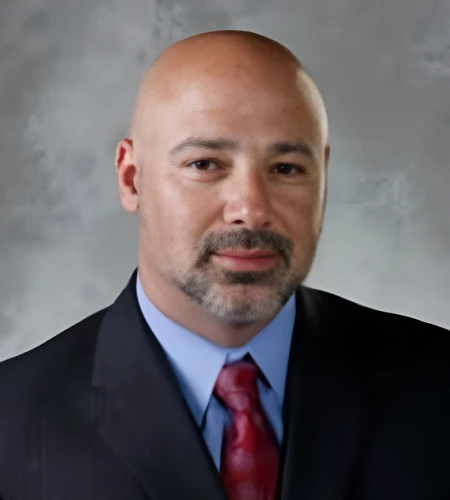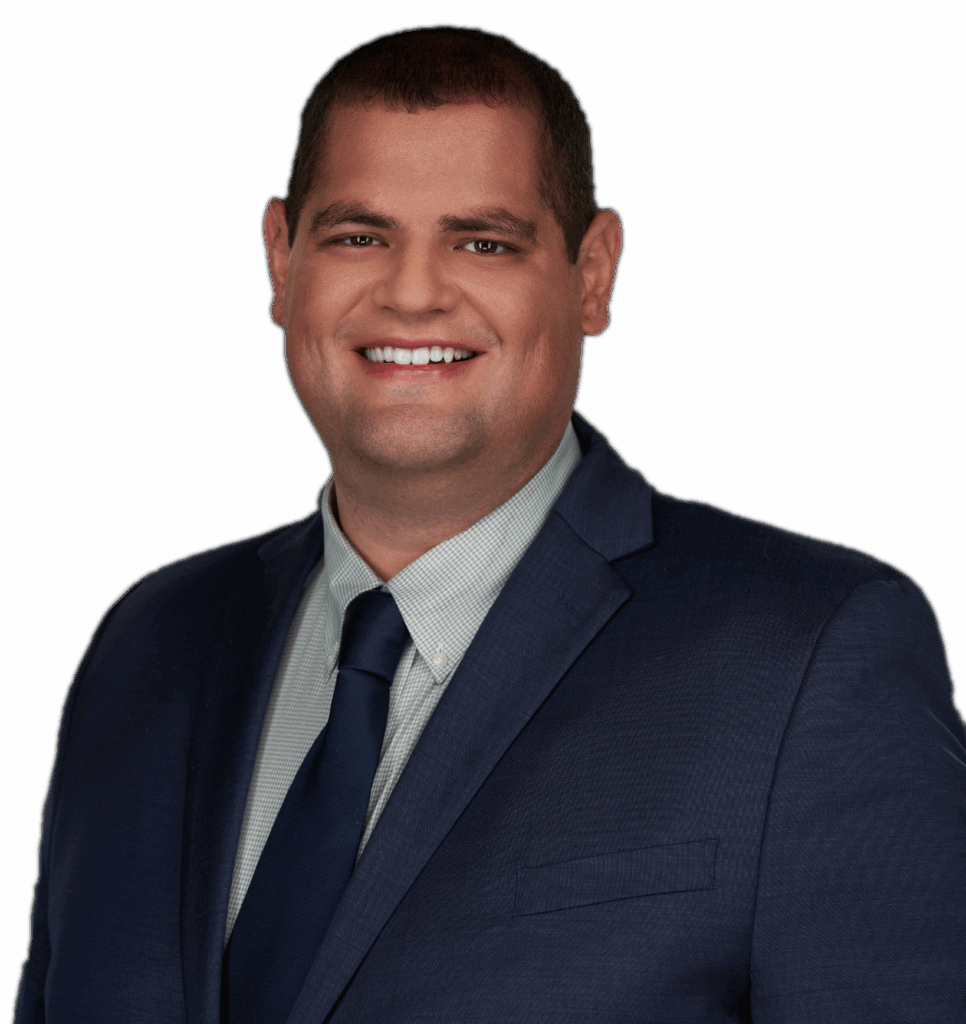A day care sells one service above all others: safety. Parents do not just pay for supervision; they pay for the guarantee of a protected space where their child can learn and grow, free from harm.
When an act of sexual abuse occurs within its walls, the facility has committed the ultimate breach of that promise and a profound violation of its legal duties. This is not a private tragedy; it is an institutional failure that demands a powerful response.
These failures have devastating consequences across New York, from local centers in Westchester to corporate chains in Manhattan. For families confronting this betrayal, the path to justice is through assertive legal action.
Securing that justice requires dedicated New York day care sexual abuse attorneys who focus exclusively on holding negligent institutions accountable for the harm they allowed.
A civil lawsuit provides a mechanism for justice that is entirely within your control. It is not about what the district attorney decides to do; it is about your family seeking to right a wrong.
This legal journey is about exposing the systemic failures that allowed abuse to occur. These institutions have a solemn duty to provide a safe environment, and when they fail, they are held liable.
Liability is a legal term for being responsible for the harm caused to another person. This accountability is the foundation of a civil claim, providing a powerful tool for survivors to achieve justice.
Table of Contents
- Recognizing Institutional Failure in New York Day Care Abuse
- How New York Day Care Sexual Abuse Attorneys Prove Negligence
- Common Cover-Up Tactics Used by Negligent Day Cares
- The Path to Justice Through a Civil Lawsuit
- Why Choose Horowitz Law for New York Day Care Sexual Abuse Cases
- Your Questions, Answered with Clarity
- Take the First Step Toward Justice
Recognizing Institutional Failure in New York Day Care Abuse

The focus in a civil claim almost always extends beyond the abuser to the day care center itself. An individual's monstrous act is often made possible by an institution's carelessness.
A New York sexual abuse lawyer can help victims and their families pursue justice by proving that the day care was negligent. Negligence is the legal term for the failure to use reasonable care, resulting in damage or injury to another. For a day care, this means the facility did not take the proper steps to protect the children in its charge, a duty it willingly accepted.
Identifying these failures is a key part of building a strong legal claim.
These organizations have specific, non-negotiable responsibilities under New York's Office of Children and Family Services (OCFS) regulations.
- Negligent hiring and retention: This is a common and shocking failure. It occurs when a day care hires an employee without conducting a proper, thorough background check, which must include a check of the Statewide Central Register of Child Abuse and Maltreatment.
It also includes retaining an employee after complaints were made or clear warning signs of inappropriate behavior were ignored by management.
- Inadequate supervision and training: A day care must have sufficient, properly trained staff to monitor all children effectively at all times. This includes enforcing strict staff-to-child ratios, especially during chaotic times like playground activities or naptime.
It also means having clear policies that forbid staff from being alone with a child in an unmonitored area, such as a bathroom or isolated classroom.
- Failure to report suspicions: New York law designates day care workers as mandated reporters. This is not a suggestion; it is a legal requirement to report any suspicion of child abuse to the authorities immediately.
A facility that discourages reporting, delays a report, or actively conceals an incident to protect its reputation is breaking the law and is complicit in the harm.
A civil lawsuit serves as a powerful deterrent, signaling to the entire child care industry that a failure to protect a child results in severe legal and financial consequences.
How New York Day Care Sexual Abuse Attorneys Prove Negligence

Proving that a day care center failed in its duties involves a meticulous, deep investigation into its operations. Evidence is gathered methodically to show a pattern of carelessness or a specific, catastrophic failure that enabled the abuse.
This process establishes a clear, undeniable link between the day care's negligence and the harm your child suffered. A successful claim demonstrates that the facility knew, or certainly should have known, about the risk and did nothing to prevent it.
The evidence-gathering process is exhaustive and uncovers the truth behind a facility's public facade.
- Forensic review of records: This goes far beyond a simple look at an employment file. It involves demanding and analyzing every relevant document, including daily attendance logs, visitor sign-in sheets, incident reports (and any reports that should have been filed), maintenance records for locks and cameras, and the day care’s own policy manuals, which are then compared to their actual practices.
- Conducting witness depositions: A deposition is sworn, out-of-court testimony. We identify and question current and former employees, other parents, and anyone who may have witnessed concerning behavior or unsafe conditions. This testimony, given under oath, is powerful evidence that can expose cover-ups and a history of negligence.
- Hiring child safety experts: We retain leading professionals who understand child care regulations and safety protocols. These individuals analyze the day care's operations, staffing ratios, and physical layout to produce an expert report that pinpoints the exact failures that violated state law and the standard of care.
Uncovering these failures in a legal setting is not about accusation; it is about presenting irrefutable proof of a breach of duty and trust.
Common Cover-Up Tactics Used by Negligent Day Cares

After an allegation of abuse arises, a day care's first priority is often to protect its own reputation and financial interests, not your child. Recognizing these defensive tactics is part of building a strong case against them.
Their actions following a report often reveal their culpability.
- Blaming the victim or family: An institution may attempt to deflect responsibility by suggesting a child is untruthful, prone to fantasy, or that the abuse must have happened elsewhere. This is a cruel and calculated tactic designed to intimidate families into silence.
- Destroying or altering evidence: A facility might delete security camera footage, alter employee timecards, or "lose" incident reports that would show their negligence. An immediate legal demand to preserve all evidence is a standard first step to prevent this from happening.
- Coordinating staff stories: Management may instruct employees on what to say or what not to say to investigators or parents. They might pressure staff members to stay silent with threats to their employment, creating a wall of silence that a lawsuit is designed to break.
Exposing these cover-up attempts is often as important as proving the initial negligence, as it demonstrates the institution's consciousness of its own guilt.
The Path to Justice Through a Civil Lawsuit

A civil lawsuit is a legal action filed in court by a survivor, through their family, against the responsible parties. It seeks monetary damages as a way to provide for the survivor's recovery and to hold the institution accountable.
It is completely separate from any criminal case the state might pursue. While the criminal system focuses on punishing the abuser, the civil system is designed to provide justice and resources directly to your child.
Laws like the New York Child Victims Act have opened a wider path to justice, giving survivors more time to file a claim. The statute of limitations is the legal deadline for filing a lawsuit, and for child sexual abuse, these deadlines have been significantly extended.
This process empowers your family. You are the plaintiff, the one bringing the action.
Economic damages: This is compensation for all financial costs related to the abuse. It includes the costs of therapy and counseling, future educational support if the trauma has impacted learning, medical bills, and any other out-of-pocket expenses.
- Non-economic damages: This compensation is for the profound, intangible harm that was inflicted. It addresses the child's pain, suffering, emotional distress, and the loss of a normal childhood. While no amount of money can erase the trauma, it is a legal acknowledgment of the severity of the harm.
- Punitive damages: In cases where the day care's conduct was particularly reckless or malicious, a court may award punitive damages. These are not meant to compensate the survivor but to punish the institution and deter similar behavior by others in the industry.
Civil justice translates a profound personal wrong into a public legal judgment, delivering a verdict that the harm done to your child has immense value and must be answered for.
Why Choose Horowitz Law for New York Day Care Sexual Abuse Cases

Choosing legal representation is a decision that will define your family's journey toward justice. Horowitz Law concentrates its practice exclusively on representing survivors of sexual abuse.
This singular focus means every resource, strategy, and action is informed by extensive experience in this specific area of law. We do not handle car accidents or medical malpractice claims; our sole mission is to fight for survivors of sexual assault and hold powerful institutions accountable.
Our approach is built on strength, direct action, and an unwavering commitment to the families we represent.
- A singular focus on abuse law: We only represent survivors of sexual abuse. This dedication provides a depth of knowledge about the tactics used by institutions and their insurance companies to evade responsibility. Whether confronting a small local day care or a large corporate child care chain, we know their playbook and how to defeat it.
- A record of holding institutions accountable: Our history is defined by taking on and succeeding against the very organizations that failed to protect the vulnerable. We pursue justice not just from the individual abuser but from the corporations whose negligence created the opportunity for abuse to occur.
- A survivor-centered approach: We recognize that the legal process is a part of a survivor's healing journey. We handle every aspect of the case with the dignity and privacy it deserves, ensuring you are informed and empowered at every stage. We manage the legal burdens so your family can focus on healing.
The strength of a legal claim rests not only on the facts but on the dedication and focused experience of the attorneys who champion it.
Your Questions, Answered with Clarity
What is the difference between a civil case and a criminal case for day care abuse?
A criminal case is brought by the government (a prosecutor) to punish an individual for breaking the law. The goal is a conviction, leading to jail time or other penalties.
The survivor's family brings a civil case against the abuser and/or the negligent institution to seek financial compensation. The two cases are independent. You can pursue a civil claim for damages regardless of whether criminal charges are filed, or what the outcome of a criminal case is.
Will my child have to testify in court?
The majority of our cases are resolved through a settlement before a trial becomes necessary. In a settlement, your child would not have to testify in a courtroom. If the case does proceed to trial, the question of a child’s testimony is handled with extreme sensitivity and care.
In New York, special measures are used to protect child witnesses, such as allowing testimony in a private room via closed-circuit television. The decision is made with the child's emotional well-being as the absolute priority.
What if we signed a liability waiver when we enrolled our child?
Liability waivers are almost never enforceable in cases of gross negligence or intentional harm, such as sexual abuse. A parent cannot sign away a child's right to be safe from abuse, and a day care cannot use a form to escape its fundamental legal duty to protect children.
These waivers are often used as an intimidation tactic, but they do not stand up in court against this type of claim.
Will our family's name be made public?
Protecting your family's privacy is paramount. In New York, we can file the lawsuit using a "Jane Doe" or "John Doe" pseudonym for your child and your family. This allows the case to proceed through the court system while shielding your identities from the public record. Any settlement agreement will also include strict confidentiality clauses to maintain your privacy.
Take the First Step Toward Justice

Your voice deserves to be heard, and accountable parties must answer for their actions. You can take control of the situation and begin the process of holding the negligent day care responsible.
Contact Horowitz Law for a confidential and free consultation to discuss your legal options. Call us at (954) 641-2100 or complete our secure online contact form.